
Banana producers are facing some problems. Production, profits and market access are highly concentrated. The conditions and prices prioritize the cheapest production possible, even when this violates labour rights or is environmentally destructive. As a consumer of bananas you could be aware of the problems and know how do identify top bananas in sustainable banana business.
Some of this problems:
- Dangerous pesticides and agrochemicals. Some of these chemicals are classified as hazardous by the World Health Organisation.
- Polluting waterways, erosion clogged rivers, killed marine life
- Clear-cutting rainforests
- Plantation conditions are harsh with workers toiling 10 -12 hours in unbearable heat up to 6 days a week
- Many workers fail to earn a 'living wage' to cover their basic needs such as housing, food, clothing and education
- Child labour or unprotected young workers
- ...
To satisfy the ever-increasing global demand for commodities, manufactured goods and travel, some organisations were foundet, to make sure that the lands that support these industries are well-managed, so that consumption does not come at the expense of ecosystems and wildlife, or the rights and dignity of workers and their families.
 |
 |
 |
 |
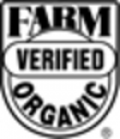 |
 |
 |
 |
 |
 |
 |
 |
 |
 |
 |
 |
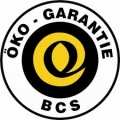 |
 |
 |
 |
 |
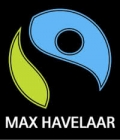 |
 |
 |
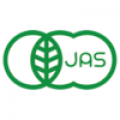 |
 |
 |
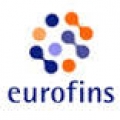 |
 |
 |
 |
 |
 |
Fig.: Working towards a fair and sustainable banana trade
The organisations does have many programs to help organic agriculture grow and thrive. They describe general organic principles in the Organic Foods Production Act and defines standards. These standards cover the product from farm to table, including soil and water quality, pest control, livestock practices, and rules for food additives. There are many certifcation programs working to conserve biodiversity and ensure sustainable livelihoods by transforming land-use practices, buisiness practises and consumer behavior.
There are some basline standards, such as the International Labour Organization (ILO), SA 8000, FLO and IFOAM Social Chapter. There are additional programs as a response to various requests of consumers, producers, processors, retailers and their global suppliers concerning the lack of applicability and breadth of existing certification programmes applicable to a wide range of products, production situations and trade relations.
The organisation should measure their impact
- Environmental Impacts
- Ecosystem Conservation
- Wildlife
- Waterways
- Climate Change
- Social Impacts
- Workers' Rights
- Pesticides, Wast & Human Health
- Woman and Children
- Community Engangement
- Economic Impacts
- Yield and Income
- Local Economic Development
- Industry Transformation
- Consumer Awareness
The UK's alternative consumer organsation "Ethical Consumer" has build up an ethical shopping guide to Bananas. They are researching and recording the social and environmental records of 17 banana brands and making the result available in a simple format.
Following certifications we have found on bananas:
| Logo | Title | Founded | Where this ecolabel is found |
|---|---|---|---|
 |
AB (Agriculture Biologique) | 1985 | France, South Africa |
|
|
Australian Certified Organic | 1987 | New South Wales |
 |
BCS Öko-Garantie GmbH | 1992 | Germany |
|
|
Bio-Siegel | 2001 | Germany, South Africa |
|
|
CERtification of Environmental Standards GmbH (CERES) | 2019 | Germany |
|
|
Demeter | 1928 | Germany, United States |
|
|
Ecocert | 1991 | Brazil, Canada, Colombia, China, Ecuador, France, Germany, India, Japan, United States, South Africa, Spain, Portugal, Turkey |
 |
Equal Exchange | 1986 | |
|
|
EU Organic Products Label | 1991 | Germany |
 |
Eurofins | 2015 | |
 |
Fair for Live | 2006 | |
 |
Fair Trade Sustainability Alliance | 2015 | |
|
|
Fairtrade Labelling Organizations International | 2009 | |
 |
Farm Verified Organic | 1995 | |
 |
Green Dove Award | 1997 | |
 |
Japanese Agricultural Organic Standard (JAS) | 2005 | |
 |
Kiwa Germany GmbH | 1992 | Germany |
|
|
KRAV Ekonomisk förening | 1985 | |
 |
Max Havelaar | 1992 | |
 |
Naturland e.V. | 1982 | |
|
|
Nutriclean | 1987 | |
 |
Pro Planet | 2011 | Germany |
 |
QCS Organics | 2001 | United States |
|
|
Rainforest Alliance | 1990 | |
 |
Rättvisemärkt | 2004 | |
 |
Sambito | 2017 | Germany |
|
|
SCS | 1984 | |
 |
Stop Climate Change | 2015 | |
 |
United States Department of Agriculture | 1862 | United States |
 |
Whole Trade™ Guarantee | 2015 |
Following detailed information about the certifications:
AB (Agriculture Biologique)

France's national logo for organic products since 1985. Organic products carrying the logo must contain more than 95 percent organic components, and be produced or processed within the EU, and were certified by one of the inspection bodies accredited according to EN 45011.
L'Agence Bio began managing and promoting the label in 2008.
Australian Certified Organic
The majority of organic products sold in Australia carry the Australian Certified Organic BUD Logo. You will see the BUD on a huge variety of products ranging from apples to baby foods, coffee to liquorice and clothing.
The BUD Logo is displayed as a stamp of integrity, and is the only symbol that consumers widely recognise. The BUD represents everything that Australian organics is about – the growth and promise of spring, the sign of big things growing from the initial organic movement, and the strength and logic of nature and natural (biological and organic) systems in guiding our choices in life. The BUD reassures consumers that all the product ingredients have been certified to the Australian Certified Organic Standard and have met rigorous certification checks. It can only be used on packaging for products which have achieved certification through ACO’s certification scheme. Most importantly, the BUD represents Australia’s leading certification program – ACO – ensuring integrity of organic products in the marketplace for consumers.
BCS Öko-Garantie GmbH

BCS ÖKO-GARANTIE GMBH is licenced as a private controlling agency since May 11th 1992 to implement the EU Regulation on organic production. We are one of the first control bodies in Germany. Long standing experience and personal engagement in all areas of organic production are the reliable basis of BCS.
Bio-Siegel
All agricultural products produced according to the requirements outlined in the EU Regulation on Organic Farming, as referenced in the German Organic Food Labelling Act, are permitted to use the Bio-Siegel label.
At least 95% of of the agricultural ingredients contained in processed products must come from organic production
CERtification of Environmental Standards GmbH (CERES)
CERES works towards the following quality goals:
1. Transparency
We are transparent regarding our criteria, policies and standard interpretation. Our policies are available to the public and clients do not need to worry about suddenly being faced with new, unexpected requirements.
2. Efficiency
- We strive to deal with your certification request in the shortest possible time.
- We endeavor to answer your questions within three business days.
3. Partnership
- We provide you with the necessary tools to auto-assess your farm's or company's compliance with relevant standards and define corrective measures.
- We believe in operator responsibility.
How we seek to achieve these goals:
- The CERES management, Ulrich Findel, Dr. Bernhard Schulz, and Albrecht Benzing have many years of experience in international certification work
- We work with well trained and independent local staff who are regularly updated.
- We continuously adapt and improve our quality management system.
- We reduce bureaucratic procedures to the necessary minimum
- We seek consistent, impartial, equal treatment for all clients
- We are open to new ideas and suggestions for improvement
- We have clear procedures for preventing conflicts of interest and discouraging corruption
Demeter

Demeter is the brand for products from Biodynamic Agriculture. Only strictly controlled and contractually bound partners are permitted to use the Brand. A comprehensive verification process insures strict compliance with the International Demeter Production and Processing Standards, as well as applicable organic regulations in the various countries; without a gap, through every step, from agricultural production to processing and final product packaging.
The Demeter Symbol was introduced in 1928 and the first standards for Demeter quality control formulated. On a rugged Mexican mountain range, on the western slopes of the Sierra Madre, Rodolfo and Walter Peters start the first Biodynamic Coffee Plantation at Finca Irlanda in Chipas which is still farmed biodynamically today.
Ecocert

Ecocert is a certification body for sustainable development. It is an inspection and certification body established in France by agronomists aware of the need to develop environmentally friendly agriculture and of the importance of offering some form of recognition to those committed to this method of production. From its creation, Ecocert is specialized in the certification of organic agricultural products. Ecocert has contributed to the expansion of organic farming.
Equal Exchange

Equal Exchange's mission is to build long-term trade partnerships that are economically just and environmentally sound, to foster mutually beneficial relationships between farmers and consumers and to demonstrate, through our success, the contribution of worker co-operatives and Fair Trade to a more equitable, democratic and sustainable world.
EU Organic Products Label
The organic product label indicates that the product has been grown within sustainable cultivation systems. Foods may only be marked as "organic" if at least 95% of their agricultural ingredients are organic. Organic ingredients in non-organic food may be listed as organic in the list of ingredients, as long as this food has been produced in accordance with the organic legislation. In order to ensure better transparency, the code number of the control body must be indicated.
The requlations of January 2009 brought greater emphasis on environmental protection, biodiversity and high standards of animal protection.
Organic production respects natural systems and cycles. Sustainable production should be achieved insofar as possible with the help of biological and mechanical production processes, through land-related production and without the use genetically modified organisms (GMO).In organic farming, closed cycles with the use of the internal resources are preferred to open cycles with the supply of external resources. Ideally, external resources should be limited to organic resources from other organic farms, natural or naturally obtained materials and low soluble mineral fertilisers. In exceptional cases, however, chemical synthetic resources may be permitted if suitable alternatives are lacking. These are only authorised and listed in positive lists in the Annex of the Commission Regulation after a thorough investigation by the Commission and the Member States.
Eurofins

With over 20,000 staff in around 200 laboratories across 38 countries,, Eurofins Scientific is the world leader in food, environment and pharmaceutical products testing. It is also one of the global market leaders in agroscience, genomics, discovery pharmacology, and central laboratory services. In addition, Eurofins is one of the key emerging players in specialty clinical diagnostic testing in Europe and the USA.
Fair for Live

An innovative company that imports, ripens, packs and distributes exotic fruits and vegetables, provides a very pleasant, friendly and safe workplace with very good working conditions even compared to already high Dutch Labour standards.No Forced Labour
- Freedom of Association and Right to Collective Bargaining
- No Child Labour and Protection of Young Workers
- Transparent and Human Disciplinary Practices
- Equal Treatment and Opportunities
- Health and Safety
- Contracts and Good Relation between Employer and Workforce
- Wages
- Social Security and Social Benefits
- Working Hours and Paid Leave
- Regular Employment
- Commitment and Management of Social Responsibility
- Community Relations
- Respecting Rights of Indigenous and Local Peoples
- Water Conservation and Water/Air Polution
- Energy Management and Climate Change
- Ecosystem Management
- Waste Management
Fair Trade Sustainability Alliance

The Fair Trade Sustainability Alliance (FairTSA) is a non-profit organization specializing in fair trade and social responsibility standard development, ethical supply chain management and accountable, sustainable community development. We are the only Fair Trade standard holder with an "open" certification system, meaning that every certifier who is interested in working with our standard can do so, provided that they comply with our basic requirements:
Carrying ISO 65 accreditation and working under ISO 65 guidelines for FairTSA certification
Open to independent FairTSA audits for both certifiers and their clients certified under the FairTSA standard
Training of all inspectors and certification reviewers under the FairTSA training program
Incorporating FairTSA supplied documentation such as the FairTSA System Plan, Inspection Report and other documents in their certification process.
Fairtrade Labelling Organizations International




Fairtrade is an alternative approach to conventional trade and is based on a partnership between producers and consumers. When farmers can sell on Fairtrade terms, it provides them with a better deal and improved terms of trade. This allows them the opportunity to improve their lives and plan for their future. Fairtrade offers consumers a powerful way to reduce poverty through their every day shopping.
Farm Verified Organic

The Farm Verified Organic program provides organic certification services to companies and individuals, to enable them to market a credible organic product to the consumer. It is accredited to certify to the US National Organic Program; ISO 65, the Canadian Organic Regime (COR), and IFOAM.
Green Dove Award

Die SGS SA mit Sitz in Genf ist ein international tätiger Schweizer Warenprüfkonzern.
Die SGS (früher Société Générale de Surveillance) bietet Dienstleistungen in den Bereichen Prüfen, Verifizieren, physikalisches Testen und Zertifizieren. Rund 83'500 Mitarbeiter arbeiten im Netzwerk der SGS aus mehr als 1500 Niederlassungen und Laboren in über 120 Ländern.
Die wichtigsten Dienstleistungen der SGS sind Inspektionen, Tests, Zertifizierungsleistungen und Verifizierungen. Bei den Inspektionen geht es um die Prüfung und den Nachweis der Menge, des Gewichts und der Qualität der gehandelten Waren. Die Tests untersuchen die Produktqualität und prüfen, ob einschlägige Gesundheits- und Sicherheitsbestimmungen sowie gesetzliche Vorschriften eingehalten werden. Zertifizierungsleistungen bestätigen, dass Produkte, Systeme oder Dienstleistungen den Anforderungen entsprechen, die Staaten, Normgeber oder die Kunden der SGS festgelegt haben. Verifizierungen erbringen den Nachweis, dass Produkte und Dienstleistungen weltweite Standards und lokale Bestimmungen einhalten.
IFOAM Organics International
IFOAM - Organics International has been leading, uniting and assisting the Organic Movement since 1972.
As the only global organic umbrella organization, we are committed to advocating Organic Agriculture as a viable solution for many of the world’s pressing problems. With 815 affiliates in over 120 countries, we campaign for the greater uptake of Organic Agriculture by proving its effectiveness in nourishing the world, preserving biodiversity, and fighting climate change. We also offer training courses, provide services to standard owners, certifiers, operators, and realize organic programs.
Principles of Organic Agriculture
- Principle of Health
- Principle of Ecology
- Principle of Fairness
- Principle of Care
International Labour Organization
The International Labour Organization (ILO) is devoted to promoting social justice and internationally recognized human and labour rights, pursuing its founding mission that labour peace is essential to prosperity. Today, the ILO helps advance the creation of decent work and the economic and working conditions that give working people and business people a stake in lasting peace, prosperity and progress. Its tripartite structure provides a unique platform for promoting decent work for all women and men . Its main aims are to promote rights at work, encourage decent employment opportunities, enhance social protection and strengthen dialogue on work-related issues.
Japanese Agricultural Organic Standard (JAS)

The JAS Standards for organic plants and organic processed foods of plant origin were established in 2000 on the basis with the Guidelines for the Production, Processing, Labelling and Marketing of Organically Produced Foods which were adopted by the Codex Alimentarius Commission.
The organic JAS system has been further developed with the addition of the JAS Standards for organic livestock products, organic processed foods of animal origin and organic feeds which took effect in November 2005.
Operators certified by registered Japanese or overseas certifying bodies are able to attach the organic JAS logo to products that were produced or manufactured in accordance with relevant organic JAS Standards.
Kiwa Germany GmbH

Merger of Kiwa and BCS Öko-Garantie (2014)
The two prestigious certification organisations Kiwa Germany GmbH in Hamburg and BCS Öko-Garantie GmbH in Nuremberg have joined forces in a move aimed at strengthening their worldwide market position.
With twelve offices in South America, Asia, Africa and Europe as well as numerous partners in 80 countries around the world, BCS is known worldwide as one of the largest certification organisations for organic products. The certified product range reflects our daily needs, ranging from dairy products, cereals and baby food through to coffee, cocoa, tropical fruit, tea and saffron with origins from around the world. With a presence in China, Brazil, Ecuador, Mexico, Cuba, Colombia, Chile and Costa Rica as well as Ethiopia, South Africa and many other countries, BCS ideally complements the Food, Feed and Farm sector of Kiwa, who is active in this service division in and outside Europe in countries such as Italy, Sweden, Spain, the UK, Turkey and Peru. Together Kiwa and BCS can now offer a much wider range of services from a single source.
Dr. Ulrich Ellinghaus, Managing Director of Kiwa Germany, is excited about the new association: "With this merger we rise to the position of one of the top names in the fast-expanding segment of food safety and organic food. With BCS we were able to gain a number of international business operations. We will use this new advantage nationally and internationally for the benefit of our customers.""
Peter Grosch, founder and CEO of BCS Öko-Garantie, agrees: "Through Kiwa we now offer our customers the opportunity to obtain one stop shopping certification of management systems. And this is just one of the synergies and benefits that this merger brings to our customers.""
About Kiwa
Kiwa was founded in the Netherlands in 1948. In Germany Kiwa has 18 sites and specialises in quality testing and certifying products and systems as well as providing environmental protection services. Kiwa works as an independent company for customers in many industries with a focus on building materials and products, real estate and infrastructure, automotive and transport, food safety, medicine, energy, gas, water and the environment. More information is available at www.kiwa.de.
About BCS
Established in 1990, BCS Öko-Garantie GmbH has been licensed as a private inspection body authorised to apply the EU eco regulation since 11 May 1992. This makes it the first approved inspection body in Germany bearing the code DE-ÖKO-001. BCS Öko-Garantie currently certifies approximately 450,000 producers in 80 countries worldwide. Many years of experience and hands-on participation at all levels of organic agriculture has shaped the company's reliable foundation. More information is available at www.bcs-oeko.de.
KRAV Ekonomisk förening
Krav develops organic standards, inspects to these standards and promotes the KRAV label. The label is a tool to implement “The goal of organic production ” into the entire chain of custody from production of raw materials to the consumer (for food and other agricultural products).
Standards encompass many factors so that the entire production system and the surrounding environment are considered.
Social justice and social rights are an integral part of the standards as are biological mechanisms.
Max Havelaar


Die 1992 von sechs grossen Schweizer Hilfswerken gegründete Max Havelaar-Stiftung ist eine Non-Profit-Organisation, die in der Schweiz das Fairtrade-Label vergibt. Als Mitglied von Fairtrade International strebt Max Havelaar an, durch fairen Handel das Leben von Kleinbauern und Plantagenarbeiterinnen in Entwicklungs- und Schwellenländern zu verbessern, betreibt aber selbst keinen Handel. Hauptaufgaben der Max Havelaar-Stiftung sind die Schaffung von Marktzugang für Fairtrade-Produkte sowie die Informations- und Sensibilisierungsarbeit für den fairen Handel in der Schweiz.
Naturland e.V.

Naturland –Association for organic agriculture is a private certification body and an organic farmers association. Since 1982 Naturland promotes organic agriculture throughout the world and is currently active in 50 countries (state of December 2010). With its 53,000 farmers and over 500 manufacturers as Naturland partners, it is one of the major organic farming associations.
Naturland regards organic competence and social responsibility as interdependent. Social standards are an integral part of each Naturland certified product. Naturland certification standards range from organic food-production, organic aquaculture, sustainable capture fishery to processing and trade as well as non-food areas like organic forest management, organic cosmetics and organic textiles.
Since the beginning of 2010, members and partners of Naturland have the opportunity for voluntary Naturland Fair certification. Naturland: organic.social.fair – certification from one source.
Nutriclean


SCS Established first “no detected residue” certification program for fresh produce, backed by full disclosures by growers, field sampling and lab testing.
The NutriClean Pesticide Residue Free Certification Program was launched in 1985 to showcase the achievements of growers whose crops meet an exceptionally tough residue standard. A product is certified as residue-free when laboratory tests find no pesticide residues down to the lab’s limits of detection, which is set based on government-accepted limit-of-detection protocols
Pro Planet

Own label of the supermarket REWE for fruits having the Rainforest Alliance Certification. REWE spends money from a banana fonds for sozial and environmental projects in Costa Rica.
QCS Organics

QCS is the certification body of Florida Certified Organic Growers and Consumers Inc., a nonprofit organization that began certifying organic growers in 1987 and received its USDA accreditation in 2001.
QCS is a USDA and ANSI ISO/IEC 17065 accredited certification body that offers a wide array of certification options for farming of crops, livestock, aquaculture, animal feed manufacturing, packing, handling and processing and wild harvest operations. We’re proud of our diverse clients and services, but we’re most proud to offer affordable certification and an unwavering commitment to customer service.
Rainforest Alliance
In the 1990s, the Rainforest Alliance began working with local non-governmental organization (NGO) partners, scientists, community leaders and farmers to transform the destructive industry by establishing the first standard for responsible banana production. The Rainforest Alliance works with banana farms to help them conserve their natural resources and promote the well-being of workers and local communities. Banana farms that are Rainforest Alliance Certified undergo annual audits to ensure that they comply with rigorous social criteria designed to protect workers, families and nearby communities.
- Reduce water consumption
- Install filtration systems to treat water
- Extensive safety training, protective gear and washing stations to workers handling agrochemicals
Rättvisemärkt


Fairtrade eller (i Finland) Rättvis handel – tidigare (i Sverige) Rättvisemärkt och (i Finland) Rejäl handel – är en produktmärkning av varor, främst livsmedel, som syftar till att förbättra arbets- och levnadsvillkor för odlare och anställda i utvecklingsländer genom rättvis handel. Märkningen innebär att produkten uppfyller de internationella Fairtrade-kriterierna, som i första hand handlar om arbetsvillkor. Till exempel ska lantarbetare ha rätt till den nationellt lagstadgade minimilönen. Kriterierna grundar sig på ILO:s åtta kärnkonventioner.
Sambito

Certification by Soluciones Ambientales Totales (SAMBITO), a private Ecuadorian company founded by two EARTH alumni.
SAMBITO’s participation proved EARTH’s close relationship with other countries and its adviser role allowed the creation of the Carbon Neutral Unit to develop emission inventory, Carbon Dioxide (CO2) reductions and removals, in addition to the respective management systems.
SCS
Scientific Certification Systems, Inc., now doing business as SCS Global Services, is a trusted leader in third-party environmental, sustainability and food quality certification, auditing, testing and standards development.
Social Accountability International


SA8000 ist ein internationaler Standard mit dem Ziel, Arbeitsbedingungen von Arbeitnehmern (Angestellte, Arbeiter, aber auch Leiharbeiter) zu verbessern. Ins Leben gerufen von der Social Accountability International (SAI).
SA8000 basiert auf Konventionen der „International Labour Organisation (ILO)“, der „Universal Declaration of Human Rights“ und der „UN Konvention für Kinderrechte“. Die Zertifizierung erfolgt durch akkreditierte Zertifizierer wie Bureau Veritas, Det Norske Veritas (DNV), DQS, Société Générale de Surveillance oder TÜV.
Um das Zertifikat zu erhalten muss ein Unternehmen folgende Anforderungen erfüllen:
- keine Kinderarbeit
- keine Zwangsarbeit
- Mindeststandards im Bereich Gesundheitsschutz und Arbeitssicherheit
- Gewerkschaften erlauben
- keine Diskriminierung
- keine physischen oder psychischen Bestrafungen
- Beschränkungen der Arbeitszeit
- ein nicht zu niedriges Lohnniveau
- weitere Anforderungen an das Management
Stop Climate Change


Mit dem Zertifizierungssystem Stop Climate Change können die von Unternehmen verursachten Treibhausgasemissionen nach standardisierten und transparenten Regeln verringert werden. Im Programm werden fundierte Informationen über den Emissionsstatus von Prozessen und deren Ressourcenverbrauch erhoben. Mit diesen Kenntnissen wird nicht nur die Freisetzung von Treibhausgasen reduziert. Sie bieten auch die Möglichkeit, die Prozesskosten zu optimieren.
United States Department of Agriculture

The U.S. Department of Agriculture has put in place a set of national standards that food labeled must meet, whether it is grown in the United States or imported from other countries.
Organic food is produced without using most conventional pesticides; fertilizers made with synthetic ingredients or sewage sludge; bioengineering; or ionizing radiation.
Whole Trade™ Guarantee

The products in this Wholefoods Market program must meet specific criteria that demand quality in four areas of responsibility: meets quality standards, provides more money to producers, ensures better wages and working conditions for workers, and Cares for the environment.
Whole Foods works with TransFair USA and the Rainforest Alliance to ensure the transparency and integrity of the program. One percent of proceeds from Whole Trade certified products will go to the Whole Planet Foundation to support micro-loan programs in developing countries. The company’s goal is to have at least half of its imported products from these countries fully certified within ten years.
Comments
Velmi kvalitní a poučný článe
High quality and informative article.
Thank you! František
Very good and educational
Very good and educational article. This article show that banana labels collector, even in small thing, share good values important for our planet..And everything, in my opinion, starts from the small things..